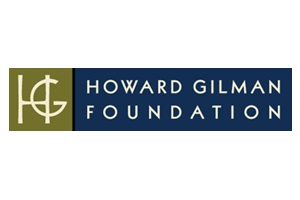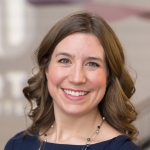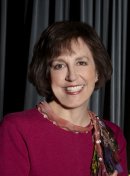Overview
Americans for the Arts recognizes that on-the-job experience can play an important role in advancing the careers of arts, nonprofit, and cultural leaders. Likewise, we know that arts organization benefit from the creativity and curiosity of students and professionals who join The arts and culture management field. Our internship programs takes great care to offer opportunities that make the most of those mutual goals. We also hope to create relationships that last well beyond any single project or term. We welcome your application and look forward to learning more about your interests and aspirations.
In-House Internship Opportunities (Work at Americans for the Arts!)
2022 Internships
Thank you for your interest in our Internship Program. Americans for the Arts is currently re-evaluating its in-house Internship program and will likely not make a decision about 2022 internships until Spring 2022. If your school or community offers sponsored virtual internship programs, Americans for the Arts can serve as a host organization for such programs. We hope that this is a temporary pause in our Internship Program, and encourage you to check back here to apply to future opportunities. Stay safe.
(Posted Nov. 19, 2021)
Program Details
The Americans for the Arts Internship Program offers undergraduate and graduate students, as well as recent graduates the opportunity to investigate and participate in the operations of the nation’s leading nonprofit for advancing the arts in America. Through a combination of learning experiences, work projects, and group collaborations, interns become integral members of our team. Interns are expected to participate in daily activities, contribute skills and ideas, and produce excellent work, all the while preparing to become the next generation of arts, nonprofit, and cultural leaders.
In addition to being a part of their departmental team within a professional office environment, interns will have the opportunity to meet everyone at Americans for the Arts and learn how each department works towards the organization’s mission. Additional program benefits include; professional development opportunities; informational interviews with contacts in the field; site visits to arts agencies and national arts organizations; peer-to-peer networking; and career counseling including resume/cover letter/interview evaluation and review.
Leadership Discussions
Day-to-day participation in the organization is augmented by special sessions in which senior staff share the inside view of their work at Americans for the Arts and their experiences as arts leaders. The open discussion format allows participants to learn directly from leaders, ask challenging questions, and address critical issues. The discussions are structured to provide both a functional overview of the organization and insight into a variety of leadership approaches.
Career Support
Interns frequently arrange informational interviews with an individual staff member to gain a closer look into their role within the organization. Human Resources staff is available to review resumes and cover letters or to discuss career direction and advancement. It is also possible to arrange meetings with arts colleagues in the DC area according to participant interests.
Evaluation Process
Ongoing communication and evaluation is encouraged as a part of every experience at Americans for the Arts. Participants and supervisors also take a step back at key points during the term to assess time lines and measure progress. Intern coordinators are available throughout the term to address unexpected challenges, help bridge communication, or get over roadblocks. Exit interviews and final evaluations help us understand how we can improve the program.
Member Services
Interns receive a one-year base membership to Americans for the Arts. Benefits include legislative alerts, access to listservs, copies of member publications, bookstore discounts, research assistance, and invitations to member events.
Academic Support
Special arrangements can be made to accommodate academic degree requirements. Staff are available to meet or correspond with academic advisors, review mandatory assignments, and complete evaluations. Please include detailed program requirements in your application.
Stipend/Wage
Americans for the Arts interns are paid on an hourly basis. Americans for the Arts can also work with the applicant’s school or program to make the internship fit criteria for academic credit or field placement experience in lieu of payment.
Internship Semesters
- Spring Internships (Posted mid-October)
10 weeks, part-time, 15-20 hours per week
Semester runs from January - April
- Summer Internships (Posted mid-February)
10 weeks, full-time, 30 hours per week
Semester runs from June - August
- Fall Internships (Posted mid-June)
10 weeks, part-time, 15-20 hours per week
Semester runs from September - December
How to Apply
All applications for the Internship Program must be submitted via our online portal. Upload your cover letter and resume while completing the online application.
If you experience technical difficulties with the online application system, please clear your browser's cache and/or turn off your pop-up blocker application.
For questions, please contact the Internship Program Manager. We appreciate all responses, but due to the high volume of applications received, we can only contact those applicants whose qualifications best match the position requirements. Final decisions will be made approximately two weeks after the application deadline.
Diversity in Arts Leadership Internship Opportunities (Summer Only)
The Diversity in Arts Leadership internship (DIAL) seeks applicants underrepresented in arts leadership who are passionate about the arts ability to transform communities and are interested in a summer experiencing what it takes to lead and move an organization and community forward. Through our local, state, and regional partners, we are proud to launch the 30th year of the undergraduate internship in 2022 with an expanded national reach. Locations include New York City, New Jersey, Nashville, Boston, Sarasota, and Raleigh–Wake County.
Supporters
The 2022 cycle of the Diversity in Arts Leadership Internship program is possible thanks to the generous support of an anonymous donor, Howard Gilman Foundation, and the Mertz Gilmore Foundation as well as several key institutional partners.






Other Arts Management Internships
California
Getty Center and the Getty Villa offers summer internships to undergraduates of culturally diverse backgrounds who reside or attend college in Los Angeles County.
Stanford Institute for Diversity in the Arts Community Arts Fellowships engages artists, students and the local community collaboratively to create performance and visual art that examine the complex intersections between race, diversity and social action
Film Independent Project Involve offers up-and-coming film professionals from under-represented communities the opportunity to hone skills, form creative partnerships, utilize free or low-cost production resources and ultimately gain the industry access necessary to succeed as working artists.
Colorado
The Diversity in the Arts Internship Program (DITA) is set to help you get your foot in the door, your face in the crowd, and your career off the ground. DITA is building a cohort of diverse arts and culture interns that will learn from and support the many art and culture nonprofits who are committed to faithfully representing the diverse Denver metro community
Illinois
Steppenwolf Theatre Multicultural Fellowship is for early career persons of color interested in working in arts administration
Maryland
Greater Baltimore Cultural Alliance Urban Arts Leadership Program increases the participation of groups that have been historically underrepresented, particularly those of color, in the management of cultural and artistic organizations
The Walters Art Museum values creating knowledge and mentoring future leaders in the museum field, both of which they deem critical to the realization of our institutional mission. To achieve these goals the museum has a lively research and fellowship program, and opens up new opportunities for training and diversifying the fields of art history and museum practice.
New York
The New York Foundation for the Arts has a classified section with various opportunities and is especially good for finding internships with galleries in New York.
Studio in a School ARTS Intern Program provides exciting opportunities for college undergrads to learn about museum professions through internships in museums and cultural institutions
4A Multicultural Advertising Intern Program allows students to work at prestigious advertising agencies on various accounts, interact w/ advertising professionals, and gain valuable professional credentials in arts management, production, and planning
Center for Communication VICE Cencom Fellowship was founded to advance both organizations’ commitment to diversifying the media landscape and ensure greater access to careers in journalism for the next generation of innovative storytellers
Pentacle Cultivating Leadership in Dance provides an unparalleled opportunity for interns to receive the benefits of a structured internship program, while working intimately with dance artists/choreographers and non-profit organizations
International Radio & Television Society (IRTS) Summer Fellowship Program is dedicated to building future media leaders; brings together the wisdom and power if today’s leaders to train & educate the next generation of media & communication professionals.
ArtTable Diversity Internship Initiative provides quality experiences and mentorship for GRADUATE students from backgrounds generally underrepresented in the field to aid their transition from academic to professional careers.
The CUNY Cultural Corps creates opportunities for City University of New York students to work in the New York City's cultural sector. Only open to CUNY students and recent graduates at this time
The PENCIL Internship Program provides students in New York City and its surrounding communities with access to career readiness training, connections to professional mentors, and the opportunity to secure a paid summer internship.
American Ballet Theatre’s Internship Program hopes to further expand ethnic and cultural diversity in classical ballet. ABT is committed to facilitating inclusive programs through its Project Plié initiative.
North Carolina
Creative Catalyst Fellowship allows participants to gain practical experience and develop visionary leadership during paid fellowships in residence at our partner organizations in the creative industries.
Pennsylvania
Philadelphia Museum of Art Honickman Diversity Internship provides students from diverse backgrounds with exposure to the inner-workings of a major metropolitan museum, promoting an awareness of careers in the field through experiences not available in most academic settings
Virginia
Wolf Trap Diversity Initiative Internship Program supports promising young professionals, especially those from cultural or ethnic backgrounds underrepresented in arts management.
Washington, DC
Smithsonian Minority Awards Program aims to increase participation of groups who are underrepresented in the museum field
Archives of American Art Horowitz-Fraad Minority Internships allows students the opportunity to learn and gain professional experience in various fields including archival science, information management, museum studies, art administration, art history, and cultural studies
Arena Stage Allen Lee Hughes Internship Program cultivates the next generation of theater professionals by providing the highest standard of training through immersion in the art and business of producing theater
The National Museum of African American History and Culture internships and fellowships offer college and graduate students and recent graduates opportunities to work closely with professionals and scholars in the museum field
Multiple Cities
Americans for the Arts lists a variety of internal arts internships and positions across the country in our job bank.
T. Howard Foundation Diversity in Media & Entertainment Internships provides minority students who are interested in media & entertainment with internships, networking opportunities, professional development training, scholarships, mentors, and more.




















 Shannon Musgrave
Shannon Musgrave



 Trenten Derryberry
Trenten Derryberry

 Stephanie Dockery
Stephanie Dockery










